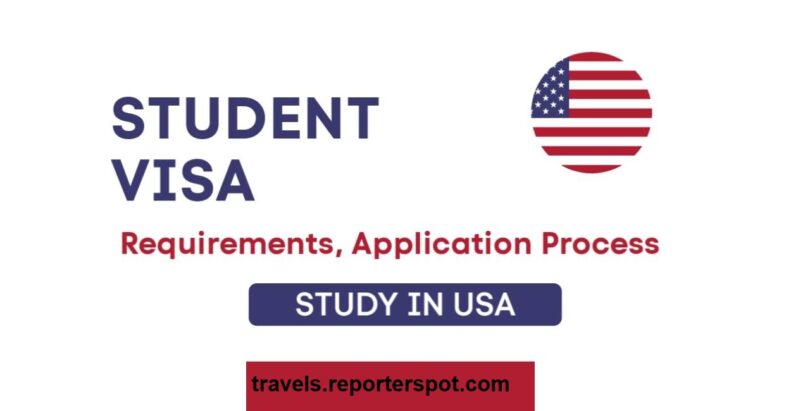Navigating the study visa application process as an international student can be complex and overwhelming. In 2025, there are new guidelines and updated requirements for many countries that you should be aware of before applying. This comprehensive guide will walk you through everything you need to know, from general criteria to country-specific regulations, so you can confidently pursue your academic goals abroad.
What is a Study Visa?
A study visa is a type of permit that allows foreign nationals to enter and stay in a country for educational purposes. It’s a critical document for international students planning to study abroad, whether for a short-term course or a full degree program. Each country has its specific requirements, so understanding the process is essential for success.
General Study Visa Requirements for 2025
While visa regulations vary by country, certain general criteria apply to most study visas worldwide. Here’s a breakdown of the basic requirements:
Acceptance into an Accredited Institution: You must first secure admission to an accredited educational institution in the country where you plan to study. The acceptance letter is crucial for your visa application.
Proof of Financial Stability: Students must show they have sufficient funds to cover tuition, living expenses, and any other costs associated with their stay.
Valid Passport: A valid passport is required, and it should be valid for the entire duration of your intended stay.
Health Insurance: Some countries require proof of health insurance coverage to ensure you’re protected during your stay.
Language Proficiency: Many countries require students to prove proficiency in the language of instruction, typically through tests like IELTS, TOEFL, or PTE.
How to Apply for a Study Visa in 2025
To apply for a study visa, you typically need to follow a few basic steps. These steps ensure you provide all necessary documentation and meet the country’s specific entry criteria:
Receive Your Acceptance Letter: Before anything else, you must be accepted by a recognized school, college, or university.
Gather Your Documents: Collect essential documents like your passport, acceptance letter, financial proof, and health insurance.
Complete the Visa Application Form: Most countries require you to fill out an online application form. Ensure you enter the correct details and pay any necessary fees.
Attend a Visa Interview (if applicable): Some countries require an interview at their consulate or embassy.
Wait for Visa Approval: Once the application is submitted, you may have to wait several weeks for approval. Processing times vary by country.
Study Visa Requirements by Country in 2025
While many aspects of the visa application process are similar across countries, each destination has its unique requirements. Let’s look at the study visa guidelines for popular international student destinations.
United States Study Visa Requirements 2025
For international students wanting to study in the United States, an F-1 visa is typically required. Here are the 2025 requirements:
SEVIS Fee: You must pay the SEVIS (Student and Exchange Visitor Information System) fee before your visa interview.
Form I-20: After being accepted into a U.S. institution, you will receive a Form I-20 from the school, which is required for your visa application.
Visa Interview: All U.S. visa applicants must attend an in-person interview at the U.S. embassy or consulate in their home country.
Proof of English Proficiency: Many U.S. institutions require English language proficiency through exams such as TOEFL or IELTS.
Canada Study Visa Requirements 2025
Canada is another popular destination for international students, and its visa process is known for being student-friendly. In 2025, these are the critical study visa requirements:
Acceptance Letter: You must have an acceptance letter from a Canadian Designated Learning Institution (DLI).
Proof of Financial Support: You must show proof of funds to cover tuition, living expenses, and return transportation.
Study Permit Application: You must apply for a Canadian study permit, which allows you to stay in Canada for the duration of your studies.
Medical Exam: Some students may need to undergo a medical exam, depending on their country of origin.
United Kingdom Study Visa Requirements 2025
The UK remains a top destination for higher education. In 2024, students applying for a Tier 4 (General) student visa must meet the following criteria:
Confirmation of Acceptance for Studies (CAS): A CAS is issued by your chosen university, which is necessary for your visa application.
Financial Evidence: You must demonstrate you have enough money to pay for your course and living costs.
English Language Proficiency: You’ll need to pass an English language test unless you’re exempt due to your country of origin.
Australia Study Visa Requirements 2025
For students wanting to study in Australia, here’s what you need to know about the Subclass 500 visa for 2025:
COE (Confirmation of Enrolment): You need a COE from an Australian educational institution to start your visa application.
GTE (Genuine Temporary Entrant): Applicants must provide evidence they intend to return to their home country after completing their studies.
Financial Proof: You’ll need to prove you have enough money to cover tuition, travel, and living expenses.
Health and Character Requirements: Some students may be asked to provide proof of good health and character through medical exams and police clearances.
Germany Study Visa Requirements 2025
Germany has become a popular destination for international students due to its low or no tuition fees at public universities. If you’re planning to study in Germany in 2025, here’s what you need to know:
University Admission Letter: You must provide a formal admission letter from a German university.
Proof of Financial Resources: You must show proof of at least €10,236 per year to cover living costs.
Health Insurance: All students must have valid health insurance during their studies.
Language Proficiency: You may need to prove proficiency in either German or English, depending on the language of instruction.
Common Mistakes to Avoid When Applying for a Study Visa
Applying for a study visa can be a daunting process, and small mistakes can lead to delays or even rejection. Here are some common pitfalls to avoid:
Submitting Incomplete Documents: Ensure that all required documents are included in your application package.
Incorrect or Inconsistent Information: Double-check that all the information in your application is accurate and consistent.
Applying Too Late: Visa processing times vary, so be sure to apply well in advance of your planned travel dates.
Not Proving Financial Capability: Ensure that you have adequate financial proof to cover your expenses.
Tips for a Successful Study Visa Application in 2025
Getting your study visa approved in 2024 requires careful planning and attention to detail. Follow these tips to improve your chances:
Start Early: Visa processing can take several weeks or even months, so begin the application process as soon as possible.
Organize Your Documents: Keep all your documents in one place and ensure they are updated.
Prepare for the Interview: If your visa requires an interview, practice answering common questions in advance.
Be Honest: Provide truthful and accurate information throughout your application.
Visa Extensions and Post-Study Work Opportunities
In many countries, you can extend your study visa if your course duration changes, or if you want to pursue further studies. Additionally, some countries offer post-study work visas that allow you to stay and work after completing your education.
United States: OPT (Optional Practical Training) allows students to work for up to 12 months after graduation.
Canada: The Post-Graduation Work Permit (PGWP) lets students stay and work for up to three years after graduation.
Australia: Graduates can apply for the Temporary Graduate Visa (Subclass 485), allowing them to work for up to four years.
Conclusion
Obtaining a study visa for international students in 2024 may seem complicated, but with the right preparation and understanding of the process, it can be smooth and straightforward. By knowing the requirements and following the tips laid out in this guide, you’ll be well on your way to achieving your academic dreams abroad.
FAQs
1. What is the average processing time for a study visa?
Processing times vary by country but generally range from a few weeks to several months.
2. Can I work while studying on a student visa?
Most countries allow students to work part-time while studying, but restrictions apply depending on the country.
3. Do I need to take a language proficiency test for every country?
Not every country requires it, but many do, especially if the course is taught in English or another official language.
4. Is health insurance mandatory for a study visa?
Yes, many countries require proof of health insurance to ensure students are covered during their stay.
5. Can I travel on my student visa?
Yes, most student visas allow international students to travel in and out of the country during their studies, but always check the specific terms of your visa.
An Online Masters Degree Courses In India That You Can Study






